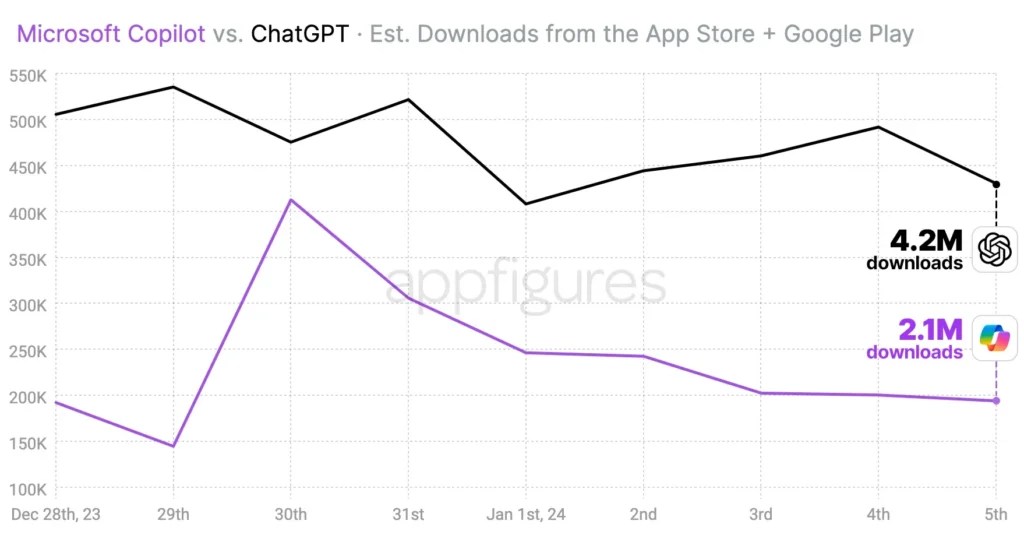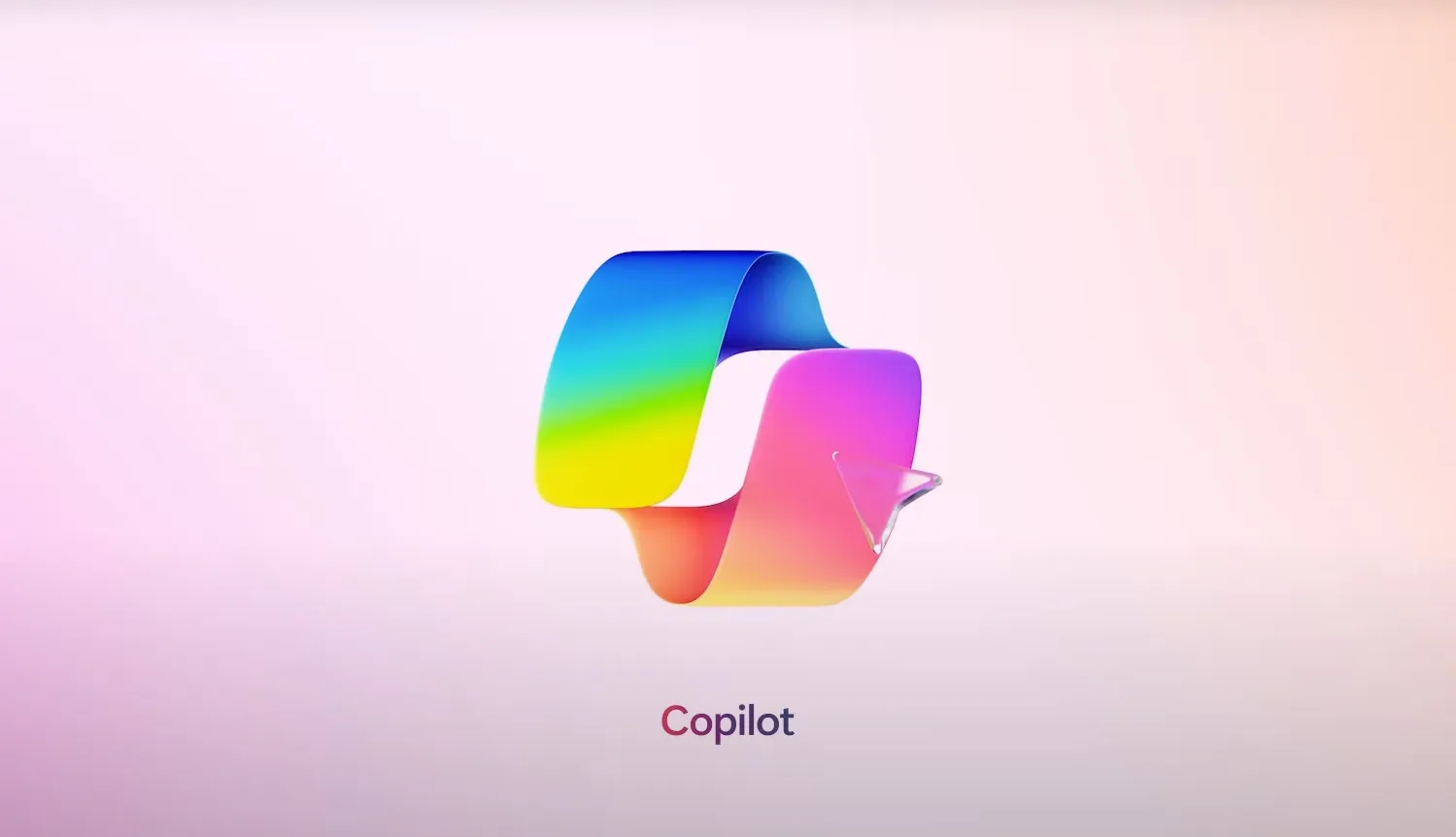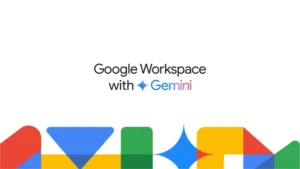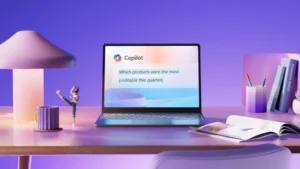The AI chatbot wars just took a twist. Microsoft’s Copilot, armed with the mighty GPT-4 engine (which OpenAI charges big bucks for!), landed on app stores with a bang – free for all. But here’s the head-scratcher: despite this “weapon of mass creativity,” ChatGPT, its OpenAI rival, is sailing smooth, downloads and revenue seemingly unfazed.
So, what gives? Did Microsoft miss the mark, or is Copilot playing a subtler game? Let’s dive into the why-didn’t-the-earth-move:
The Stealth Launch: Turns out, Copilot’s arrival wasn’t exactly a fanfare. No Google Play premiere, no App Store confetti. While it snuck onto Android in December, iOS users had to wait till late December, by which point the holiday buzz had dimmed. This radio silence left potential users blissfully unaware.
Search? Nah, We’re Good: Remember those handy app store searches for “AI chatbot” or “ChatGPT”? Copilot? Not so much. Microsoft isn’t using search ads, the magic dust that sprinkles your app on top of user queries. So, unless you stumbled upon Copilot organically, its AI prowess remained hidden.
Downloads: A Decent Start, Not a Revolution: Copilot did manage 2.1 million downloads across iOS and Android, respectable but not earth-shattering. The initial spark fizzled out quickly, with daily downloads now a fraction of the peak. It’s still early days, but the numbers suggest Copilot hasn’t quite captured the public imagination.
But Wait, There’s More to Copilot! It’s not just about chat, folks. Copilot throws in DALL-E 3, the mind-blowing image generator, for a creative double whammy. This unique combo might appeal to a different audience, one that values visual storytelling alongside witty banter.
The Long Game?: Maybe Microsoft isn’t aiming for an immediate knockout. Copilot could be a slow burn, building a loyal user base who appreciate its free GPT-4 and DALL-E 3 blend. Time will tell if this strategy pays off, but one thing’s for sure: the AI chatbot game just got a whole lot more intriguing.

Image Credit: App Figures




